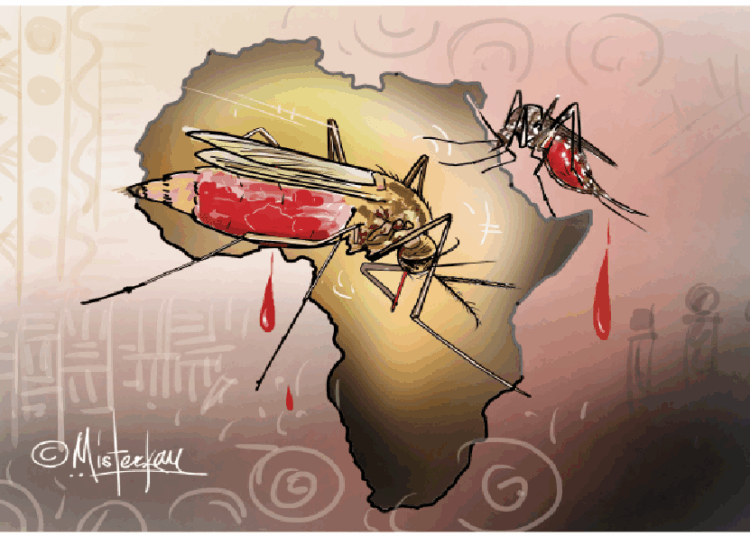Sub-Saharan Africa continues to bear the brunt of malaria cases in the world. In this region, 11 countries account for two-thirds of the global burden.
World Malaria Day is 25 April. What progress has been made against the disease, where are the gaps, and what’s being done to plug them?
As scientists researching malaria in Africa, we believe the continent can defeat the disease. New, effective tools have been added to the malaria toolbox.
Researchers and malaria programmes, however, must strengthen collaborations. This will ensure the limited resources are used in ways that make the most impact.
The numbers
Some progress has been made, but in some cases, there have been reverses.
Between 2000 and 2015, there was an 18% reduction in new cases from 262 million in 2000 to 214 million in 2015. Since then, progress has stalled.
The World Health Organisation estimates that approximately 2.2 billion cases have been prevented between 2000 and 2023. Additionally, 12.7 million deaths have been avoided. In 2025, 45 countries are certified as malaria free. Only nine of those countries are in Africa. These include Egypt, Seychelles and Lesotho.
The global target set by the WHO was to reduce new cases by 75% compared to cases in 2015. Africa should have reported approximately 47,000 cases in 2023. Instead, there were 246 million.
Almost every African country with ongoing malaria transmission experienced an increase in malaria cases in 2023. Exceptions to this were Rwanda and Liberia.
So why is progress stagnating and in many cases reversing?
The setbacks
Effective malaria control is extremely challenging. Malaria parasite and mosquito populations evolve rapidly. This makes them difficult to control.
Africa is home to malaria mosquitoes that prefer biting humans to other animals. These mosquitoes have also adapted to avoid insecticide-treated surfaces.
It has been shown in South Africa that mosquitoes may feed on people inside their homes, but will avoid resting on the sprayed walls.
Mosquitoes have also developed mechanisms to resist the effects of insecticides. Malaria vector resistance to certain insecticides used in malaria control is widespread in endemic areas. Resistance levels vary around Africa.
Resistance to the pyrethroid class is most common. Organophosphate resistance is rare, but present in west Africa. As mosquitoes become resistant to the chemicals used for mosquito control, both the spraying of houses and insecticide treated nets become less effective. However, in regions with high malaria cases, nets still provide physical protection despite resistance.
An additional challenge is that malaria parasites continue to develop resistance to anti-malarial drugs. In 2007 the first evidence began to emerge in south-east Asia that parasites were developing resistance to artemisinins. These are key drugs in the fight against malaria.
Recently this has been shown to be happening in some African countries too. Artemisinin resistance has been confirmed in Eritrea, Rwanda, Tanzania and Uganda. Molecular markers of artemisinin resistance were recently detected in parasites from Namibia and Zambia.
Malaria parasites have also developed mutations that prevent them from being being detected by the most widely used rapid diagnostic test in Africa.
Countries in the Horn of Africa, where parasites with these mutations are common, have changed the malaria rapid diagnostic tests used to ensure early diagnosis.
The progress
Nevertheless, the fight against malaria has been strengthened by novel control strategies.
Firstly, after more than 30 years of research, two malaria vaccines – RTS,S and R21 – have finally been approved by the WHO. These are being deployed in 19 African countries.
These vaccines have reduced disease cases and deaths in the high-risk under-five-years-old age group. They have reduced cases of severe malaria by approximately 30% and deaths by 17%.
Secondly, effectiveness of long-lasting insecticide-treated nets has been improved.
New insecticides have been approved for use. Chemical components that help to manage resistance have also been included in the nets.
Thirdly, novel tools are showing promise. One option is attractive toxic sugar baits. This is because sugar is what mosquitoes naturally eat. Biocontrol by altering the native gut bacteria of mosquitoes may also prove effective.
Fourthly, reducing mosquito populations by releasing sterilised male or genetically modified mosquitoes into wild mosquito populations is also showing promise. Trials are currently happening in Burkina Faso. Genetically sterilised males have been released on a small scale. This strategy has shown promise in reducing the population.
Fifthly, two new antimalarials are expected to be available in the next year or two. Artemisinin-based combination therapies are standard treatment for malaria. An improvement to this is triple artemisinin-based combination therapy. This is a combination of this drug with an additional antimalarial. Studies in Africa and Asia have shown these triple combinations to be very effective in controlling malaria.
The second new antimalarial is the first non-artemisinin-based drug to be developed in over 20 years. Ganaplacide-lumefantrine has been shown to be effective in young children. Once available, it can to be used to treat parasites that are resistant to artemisinin. This is because it has a completely different mechanism of action.
The end game
It has been several years since the malaria control toolbox has been strengthened with novel tools and strategies that target both the vector and the parasite. This makes it an ideal time to double down in the fight against this deadly disease.
In 2020, the WHO identified 25 countries with the potential to stop malaria transmission within their borders by 2025. While none of these countries eliminated malaria, some have made significant progress. Costa Rica and Nepal reported fewer than 100 cases. Timor-Leste reported only one case in recent years.
Three southern African countries are included in this group: Botswana, Eswatini and South Africa. Unfortunately, all these countries showed increases in cases in 2023.
With the new tools, these and other countries can eliminate malaria, getting us closer to the dream of a malaria-free world.
– Culled from The Conversation





